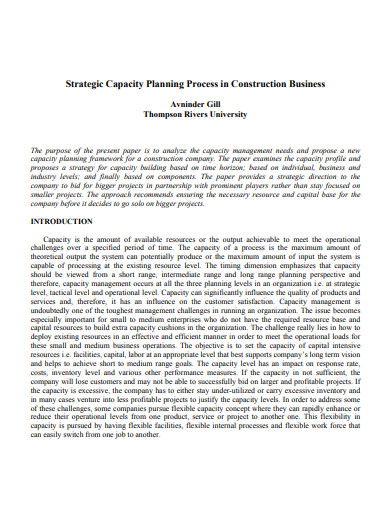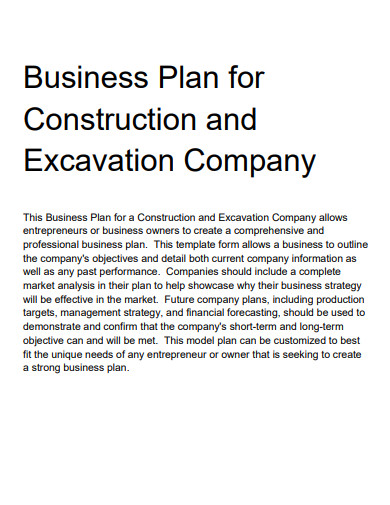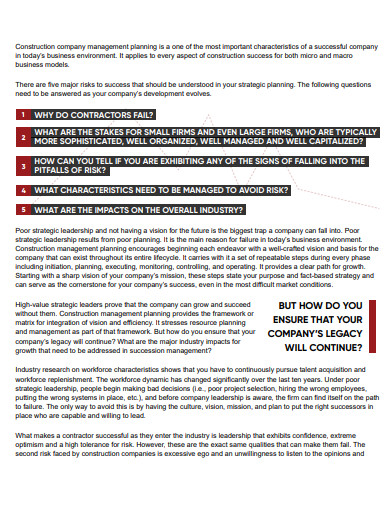The construction industry is a dynamic environment that constantly involves a lot more than jut household risks and safety hazards. It’s an industry that encompasses a wide variety of activities including but not limited to repair, remodeling, and commercial construction. It’s not just workers and employees who are constantly exposed to the risks, but also the company or business itself. Not just that, the construction industry is one that is particularly competitive as well. Nowadays where every place in Earth is under rapid modernization, it is to no surprise that there has been quite the influx of demand for construction and construction companies all around. Which then makes it incredibly difficult for new and startup construction companies to make their way in and around the industry.
Businesses can be really difficult to manage, especially if you’re operating within a very centralized yet highly competitive industry like construction. Starting a business here can be really expensive and difficult, and trying to make your venture successful is a whole another story of difficulty. It can be quite a chore to keep track of everything that needs to be covered, making sure that every component of your business is taken into account. That is why to create a proper layout for a comprehensive plan is very important for corporations and organizations, regardless if the business is a startup or not. A well laid-out plan keeps everybody that is a part of the business, especially managers and supervisors, on track for everything that may be encountered during the overall duration of the project, or the business itself. A well written business plan does really well in bringing the concept altogether, keeping every business operations smooth and mostly without any problems.
Operating without a business plan is generally not a good idea, and not at all encouraged. For some, establishing a business without some sort of plan or guidelines would only mean that you are not fully committed to the venture, and you have no vision of what your business will become whatsoever. Being able to come up with a well written business plan and operating with it comes with its own benefits. Like being able to come up and experiment with new ideas without having to waste precious time and resources on experimentation, since those components have already been covered within your document. But before you actually draft your own business plan, get to know the document more by checking out these construction company business plan samples that we have listed for you down below. Once you’re fully acquainted with the document, what it looks like and how it works, feel free to use these samples as guides or even as templates for when you finally start writing your own construction business plan.
4+ Construction Company Business Plan Samples
1. Construction Company Business Plan
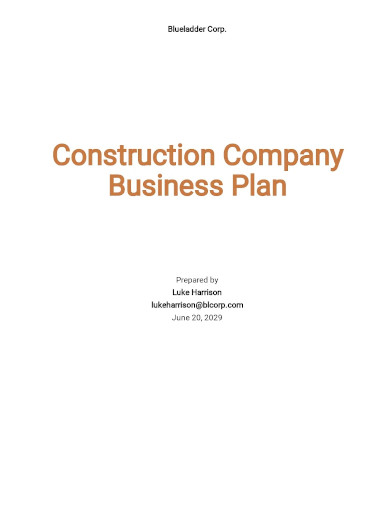
2. Sample Construction Company Business Plan
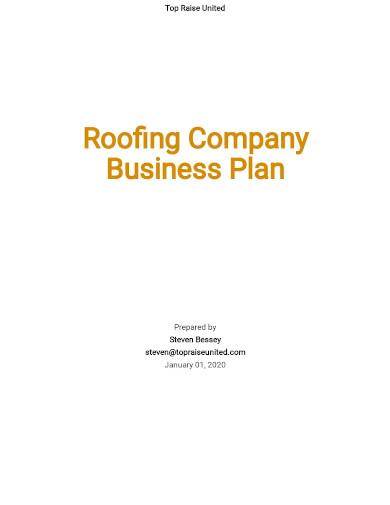
3. Construction Company Strategic Business Plan
4. Construction and Excavation Company Business Plan
5. Construction Company Business Management Plan
What Is a Construction Company Business Plan?
Simply enough, a business plan is a document that describes and presents how a business would define the objectives and the steps that the management will take to reach the goals that they have set for themselves. A business plan essentially works like a roadmap that the company can follow guided by the inputs of their respective departments like marketing, financial, and operational. Business plans can also be used to attract prospective investors and potential clients even before the business been properly established, which makes the document even more valuable, especially for new and startup companies. And even if the benefits of the document better affects startup business and companies, every company and organization should be able to establish their own well written business plan.
Doing so will provide them a document that they can periodically change and update to see how much progress they have made and how the circumstances that they have been working on has changed. A well laid out business plan is one that is able to outline the projected costs and estimated outcomes of the venture, as well as inspect the potential pitfalls that every decision of the management may have. Despite being widely used in the business and corporate space, it’s still very unlikely to see two business plans from two different companies to be completely identical. This is because most companies tend to have their own way of solving and dealing with their own problems within their company.
Elements of a Construction Company Business Plan
The length of your document varies depending on the nature and the scope of the business that your business plan will cover. However, it is pretty common for business plans to be around 15 to 20 pages long. And despite every business plan every to be completely unique from one another, they still tend to operate with the same elements. These elements are listed and discussed in more detail down below.
1. Executive Summary
Your business plan should open with a paragraph the highlights the company itself and what it stands for. Executive summaries present the mission-vision values of your company, company leadership, employees and employee operations, and where the business operates.
2. Products and services
The business plan should then present its own products and services that they are offering. It should also contain the pricing, product lifespan, as well as the benefits that clients may gain once they avail these products and these services. You can choose to include other factors like the manufacturing and production processes, patents, and proprietary technology.
3. Market analysis
A business needs to have a perfect idea of their own target market and what their demographic is. Proper market analysis will provide an outline of who or what the competition is and give you a better idea of how to stay on top of the competition. It should also be able to outline the expected consumer demand and how difficult it would be to take advantage of that demand.
4. Marketing strategy
Once you’ve analyzed your market properly, identify the strategies that the company will use to attract the larger customer base and how it intends to keep them continuously engaged with the business. Talk about how the management will reach the clients by highlighting a clear distribution channel that includes the marketing and promotional campaigns and through which medium should these campaigns be disseminated to.
5. Financial planning
A well laid out financial plan can be very attractive especially to investors and potential business partners who wish to invest on ventures that are able to return a good investment. Financial statements, balance sheets, and other financial information must be present.
6. Budget
Every company needs to have a proper budget in place that includes the costs, manufacturing, development, marketing, and the expenses that your business has or will have made.
FAQs
Do I need a license to start a construction company?
If you’re just starting a small construction or contracting company, you need to apply for a general business license. Of course, having a professional license of certification will give you a significant advantage over competition, and some clients may only work with companies who does have a license.
What is the purpose of checklist in construction?
Checklists are documents that can help with the audit in the field. It helps fulfill the criteria for quality assurance and the requirements of construction activities.
What types of construction is most profitable?
- Painter
- Plumber
- Vehicle repair
- Machine Operator
- Electrician
- Brickmason
- Construction Worker
One last very important quality of a business plan that you need to remember and keep in mind is that the document is not supposed to be static. Business plans are ‘live’ documents, meaning that it should be susceptible to change over time. The document should be inspected and updated regularly to adapt to the changes of the business and how the circumstances have changed. Think of it as a living entity, something that grows along with your business.
Related Posts
FREE 9+ 30-Day Marketing Plan Samples in PDF | MS Word | Apple Pages | Google Docs
FREE 3+ Sales Team Action Plan Samples in PDF | MS Word | Apple Pages | Google Docs
Marketing Plan For Small Business Samples
FREE 7+ Fashion Business Plan Samples in PDF
FREE 10+ Sprint Planning Samples In MS Word | Google Docs | PDF
FREE 10+ Wedding Planning Samples in MS Word | Apple Pages | Powerpoint | PDF
FREE 9+ Monthly Study Planner Samples in PSD | Illustrator | InDesign | PDF
FREE 9+ Sample Curriculum Planning Templates in PDF | MS Word
FREE 10+ Teacher Development Plan Samples in MS Word | Google Docs | Apple Pages | PDF
FREE 10+ Basketball Practice Plan Samples in PDF
FREE 12+ School Business Plan Samples in PDF | MS Word | Apple Pages | Google Docs
FREE 7+ Client Strategic Plan Samples in PDF | MS Word
FREE 11+ Trucking Business Plan Templates in PDF | MS Word | Google Docs | Pages
FREE 7+ Small Hotel Business Plan Samples PDF | MS Word | Apple Pages | Google Docs
FREE 14+ Bakery Business Plans in MS Word | PDF | Google Docs | Pages

